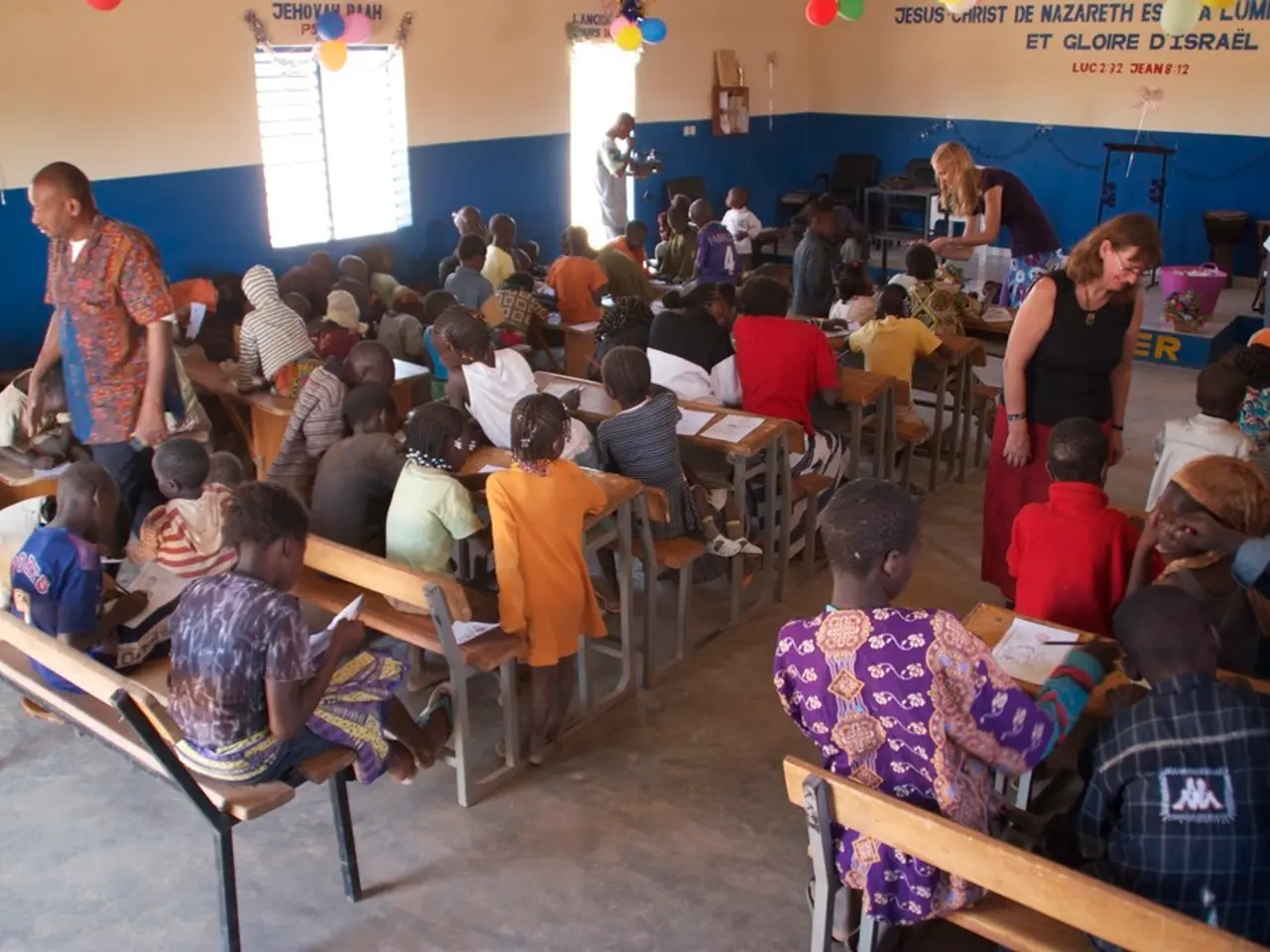The possible impact of nutritional discussions on reducing obesity among children.
New Study Suggests Effective Digital Intervention for Preventing Childhood Obesity
A groundbreaking study, known as the Greenlight Plus Trial, is making waves in the fight against childhood obesity. Co-led by Eliana Perrin, a Bloomberg Distinguished Professor at Johns Hopkins University, the study offers a promising approach to prevent obesity in children from birth to age 2 [1][2].
The Greenlight Plus Trial combines health literacy-informed counseling in pediatric clinics with asynchronous digital interventions, including text messaging. The text messages encourage healthy habits such as drinking water and milk, physical activity, and reducing screen time [1]. A web-based parent dashboard allows parents to track their child's growth, monitor weight and height metrics, and access intervention content [1].
The study found a significant reduction in weight-for-length trajectories and obesity at 24 months, particularly for children from households with food insecurity [1][2]. The intervention yielded a nearly 45% relative reduction in obesity rates by age two, indicating a strong primary prevention effect even in diverse and high-risk populations [1][2].
The key components that made these strategies effective were interactive text messages promoting actionable behaviors such as appropriate portion sizes and substitution of unhealthy foods/drinks. The web dashboard for tracking child’s weight and height metrics provided tailored guidance to support parental decision-making [1].
The success of the Greenlight Plus Trial suggests these digital interventions are scalable and cost-effective for broad application in pediatric primary care to prevent early childhood obesity [2]. The trial reflects a shift toward scalable solutions that can reach diverse communities and reduce health disparities.
Moreover, the study underscores the importance of early intervention in preventing obesity, as children learn critical habits during the first couple of years of life. The Greenlight Plus Study offers guidance on critical habits such as water consumption, portion control, and physical activity outside of pediatric office visits [1].
Eliana Perrin has been awarded a grant by the Patient-Centered Outcomes Research Institute to continue this work and follow the same cohort of children until early school age [2]. The research highlights the need for policies promoting improved physical activity, less advertising of unhealthy products, and healthier dietary practices. It also advocates for a shift from reactive treatment to prevention of childhood obesity and other chronic diseases, as well as improved primary care for all.
[1] Perrin, E., et al. (2021). Greenlight Plus Trial: A Randomized Controlled Trial of an Asynchronous Digital Intervention to Prevent Obesity in Infancy and Early Childhood. JAMA Pediatrics.
[2] Perrin, E., et al. (2022). Greenlight Plus Trial: Effectiveness of Digital Intervention to Prevent Obesity in Infancy and Early Childhood. Pediatrics.
- The Greenlight Plus Trial's findings suggest that health-and-wellness digital interventions, such as text messaging promoting healthy habits like water consumption and physical activity, can effectively prevent childhood obesity.
- An innovative combination of health literacy-informed counseling in pediatric clinics with asynchronous digital interventions like the Greenlight Plus Trial could lead to significant reductions in obesity rates among children from birth to age 2.
- By integrating a web-based parent dashboard for tracking children's growth, monitoring weight and height metrics, and accessing intervention content, parents can make informed decisions about supporting their child's healthy diet and fitness-and-exercise habits.
- Nutrition awareness and appropriate portion sizes were key to the success of the Greenlight Plus Trial, as it encouraged the substitution of unhealthy foods and drinks with healthier alternatives, advocating for a more balanced and science-based dietary approach in children.
- The scalability and cost-effectiveness of digital interventions in primary care, such as the Greenlight Plus Trial, have the potential to reduce health disparities and promote research into effective prevention strategies for childhood obesity, ultimately leading to improved overall health outcomes.




